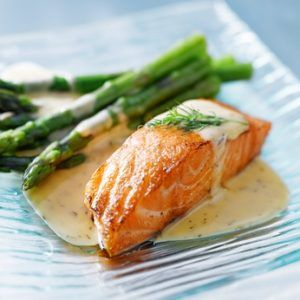
Just because food patents are rare to come by does not mean that it is impossible to obtain a patent. Every once in awhile food patents are granted when the following requirements are met: Product is novel, product is non-obvious, and product is useful.
All food recipes should meet the useful requirement as long as the food is edible. So we will focus on the other two requirements as they go hand and hand. Under 35 U.S.C 102 and 35 U.S.C. 103 sections of the statute on patent eligibility, food recipes need to be a new invention and notably distinguishable from prior recipes already used.
The best current example of a successful food patent granted is Bubba’s boneless ribs. Recent Shark Tank contestant and former NFL player Al “Bubba” Baker presented before the sharks his de-boned ribs. What impressed the sharks was his ability to obtain a food patent of his boneless ribs. The sharks had never before seen a food patent.
Baker was able to obtain a patent on his ribs because he had discovered a new method of de-boning the ribs after being barbecued. While it is not uncommon to de-bone ribs before barbecuing, he had successfully developed a quick method to de-bone the ribs after the ribs were already cooked. As any rib lover knows leaving the bones in the ribs while cooking are what give the ribs its wonderful flavor. His never seen before process proved to meet the novel requirement. His ability to maintain the bone flavor after the bones were removed from the ribs differentiated his ribs from other boneless ribs and successfully satisfied the non-obvious requirement.
If you or someone you know is considering filing for a food patent law make sure your food recipe can hold up to the novel and non-obvious requirements. Otherwise, consider keeping the recipe as a trade secret. Many food companies and restaurant entrepreneurs prefer keeping recipes as trade secrets over patenting them simply because trade secrets remain the intellectual property forever, whereas patents expire over time. Also in order to file a patent, the recipe or process to make the recipe must be disclosed to the general public. Any company or individual looking to steal your recipe or process only need wait until the patent term expires.

